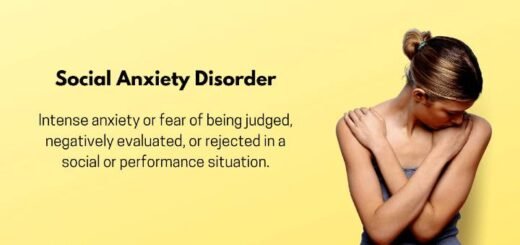Enhancing Communication Skills for Students with Social Phobia
Effective communication skills are crucial for students navigating social interactions, especially in the context of New Zealand schools, where social anxiety can significantly hinder personal development. Practical strategies such as role-playing and mindfulness techniques serve as valuable tools in enhancing these skills. Role-playing allows students to practice real-life scenarios in a safe environment, while mindfulness techniques can help them manage their emotions and reduce anxiety, fostering a greater sense of confidence in social settings.
Addressing the issue of social anxiety coping is essential for creating a supportive school environment. By implementing these strategies, educators can empower students to overcome their fears and build meaningful connections with peers. For more insights into understanding social phobia in New Zealand schools, visit this resource, which highlights the importance of addressing social anxiety and promoting healthy communication practices among students.
Understanding Communication Skills in Students
Effective communication is a cornerstone of successful social interactions, particularly for students who may struggle with social anxiety. Communication skills encompass verbal and non-verbal techniques that facilitate understanding and connection between individuals. In New Zealand, many students face challenges in expressing themselves due to various factors, including cultural differences and the pressure of fitting into peer groups.
One of the first steps in enhancing communication skills is recognizing the impact of social phobia. Students experiencing social anxiety often avoid interactions, leading to feelings of isolation. It is crucial to create a supportive environment where students can practice their communication skills without fear of judgment. Engaging in discussions about the importance of effective communication can empower students to recognize their strengths and areas for improvement. Resources such as Social Phobia New Zealand provide valuable insights into coping strategies and support for students dealing with anxiety.
Role-Playing as a Communication Tool
Role-playing is a dynamic method for enhancing communication skills among students. By simulating various social scenarios, students can practice their responses and gain confidence in their abilities to interact with others. This technique can be particularly beneficial in a school setting where students may encounter diverse social situations, such as making new friends, participating in group discussions, or presenting in front of a class.
To implement role-playing effectively, teachers and parents can create a safe space for students to express themselves. For instance, a teacher can organize role-play scenarios that involve common school interactions, such as asking for help from a classmate or initiating a conversation with a new student. By practicing these interactions, students can reduce their anxiety and develop effective communication strategies. Additionally, incorporating mindfulness techniques before role-playing can help students center themselves and approach the exercise with a calm mindset.
Mindfulness Techniques for Improved Communication
Mindfulness is a powerful tool that can significantly enhance communication skills by promoting self-awareness and emotional regulation. By practicing mindfulness, students can learn to focus on the present moment, reducing anxiety that often accompanies social interactions. Simple techniques such as deep breathing, meditation, or mindful listening can prepare students to engage more effectively with their peers.
In the context of New Zealand schools, incorporating mindfulness practices into the daily routine can foster a culture of open communication. For example, starting the day with a short mindfulness session can help students feel grounded and ready to engage with others. Teachers can encourage students to take a moment to breathe deeply before responding in conversations, allowing them to articulate their thoughts more clearly. This practice not only enhances communication skills but also serves as a coping mechanism for students experiencing social anxiety.
Encouraging Group Discussions and Collaborative Activities
Participating in group discussions and collaborative activities can significantly enhance students’ communication skills. These settings provide opportunities for students to express their thoughts, listen to others, and engage in constructive dialogue. In New Zealand, schools often emphasize group work as part of the curriculum, making it an ideal environment for students to practice their skills.
To encourage effective communication in group settings, teachers can implement structured activities that promote interaction. For instance, group projects, debates, or peer-led discussions can create a platform for students to share their ideas and perspectives. Additionally, incorporating social anxiety coping strategies, such as setting clear expectations and providing positive reinforcement, can help students feel more comfortable participating in these activities. This approach not only enhances communication skills but also builds a sense of community within the classroom.
Building Confidence Through Public Speaking
Public speaking can be a daunting task for many students, especially those with social anxiety. However, developing public speaking skills is essential for effective communication and can significantly boost students’ confidence. In New Zealand, schools can provide opportunities for students to practice public speaking in a supportive environment.
To build confidence in public speaking, teachers can start with small, informal presentations where students can share their interests or hobbies. Gradually increasing the complexity of these presentations can help students become more comfortable speaking in front of others. Additionally, incorporating feedback sessions can allow peers to offer constructive criticism, further enhancing their skills. Programs focused on public speaking, such as Toastmasters for youth, can also provide a structured approach to developing these vital communication skills.
Utilizing Technology for Enhanced Communication Practice
In today’s digital world, technology can play a significant role in enhancing communication skills among students. Various apps and online platforms offer resources for practicing speaking and listening skills, making them accessible for students across New Zealand. Utilizing these tools can help students with social anxiety engage in communication practice in a less intimidating environment.
For example, students can use video conferencing applications to practice conversations with peers or even engage in role-playing exercises remotely. This approach allows students to gain experience in a controlled setting, which can alleviate anxiety when interacting in person. Additionally, online communities focused on social skills development can provide support and resources for students navigating communication challenges. Resources from Social Phobia New Zealand can further assist students in finding coping strategies that resonate with their experiences.
Creating a Supportive Environment for Communication Growth
Creating a supportive environment is essential for fostering effective communication skills among students. This involves not only the role of educators but also parents and peers in encouraging positive social interactions. In New Zealand, schools can implement programs that emphasize the importance of empathy, active listening, and respect for diverse perspectives.
Encouraging students to support one another in their communication journeys can help build a collaborative atmosphere. For instance, peer mentoring programs can empower students to practice their skills in a safe and nurturing environment. Additionally, incorporating social-emotional learning into the curriculum can enhance students’ understanding of their emotions and the emotions of others, further improving their communication abilities. Addressing issues related to social anxiety openly can also help destigmatize these experiences, allowing students to seek support and develop healthy coping mechanisms.
FAQs
What are some effective role-playing techniques to enhance communication skills?
Role-playing involves simulating social scenarios, allowing students to practice their responses in a safe environment. Effective techniques include pairing students with different partners to explore various social contexts, using prompts to guide conversations, and providing constructive feedback after each role-play session. This practice can help students build confidence and reduce feelings of social anxiety.
How can mindfulness techniques improve communication skills in students?
Mindfulness techniques, such as deep breathing and meditation, can help students become more present in social interactions. By focusing on the moment and reducing anxiety, students can better engage in conversations. Practicing mindfulness can also enhance emotional regulation, allowing students to respond to social cues more effectively and communicate their thoughts clearly.
What role does active listening play in effective communication?
Active listening is crucial for effective communication as it demonstrates respect and understanding. Techniques include maintaining eye contact, nodding, and summarizing what the other person has said. By practicing active listening, students can foster deeper connections, which can ease social anxiety and make interactions feel more comfortable.
How can group discussions help students enhance their communication skills?
Group discussions provide a platform for students to express their thoughts and opinions in a structured environment. Participating in these discussions encourages students to articulate their ideas clearly while also responding to others. This interaction not only builds confidence but also helps students practice coping strategies for social anxiety, making them feel more at ease in larger social settings.
What are some tips for managing social anxiety during social interactions?
To manage social anxiety, students can implement strategies such as preparing topics in advance, setting realistic goals for interactions, and using positive self-talk to counter negative thoughts. Additionally, practicing relaxation techniques before engaging in social situations can help reduce anxiety and increase comfort levels.
How can teachers support students in developing their communication skills?
Teachers can support students by creating a safe and inclusive classroom environment where students feel free to express themselves. Incorporating activities like group projects, presentations, and role-playing exercises can facilitate skill development. Providing regular feedback and encouragement can also empower students to tackle social interactions more confidently, helping them cope with social anxiety.
Are there specific resources or tools that can aid in enhancing communication skills?
Yes, various resources can aid in enhancing communication skills. Books on social skills, online courses, and workshops focused on communication techniques can be beneficial. Additionally, apps that promote mindfulness and anxiety management can help students practice coping strategies for social anxiety, ultimately improving their overall communication abilities.
References
- Social Phobia New Zealand – A resource that offers information and strategies for managing social anxiety, including practical communication techniques for students.
- The Importance of Role-Playing in the Classroom – This article discusses the benefits of role-playing as an educational tool to enhance communication skills and social interaction among students.
- Mindful Schools – An organization that provides mindfulness programs for educators and students, focusing on techniques that improve attention and emotional regulation, which are crucial for effective communication.
- 7 Tips to Improve Your Child’s Social Skills – This resource offers practical strategies for parents and educators to support children in developing better social skills through various activities, including role-playing.
- Mindfulness in the Classroom – An overview of how mindfulness practices can be integrated into the classroom to enhance students’ focus and communication abilities, fostering a supportive social environment.




